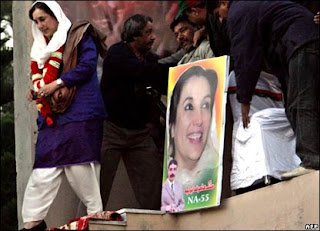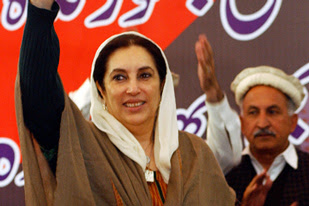The recent announcement of Mr Tharman Shanmugaratnam’s promotion to Finance Minister — in addition to his current Education portfolio — set many of tongues wagging as to whether he might be the successor to Prime Minister Lee Hsien Loong many moons from now. This in turn sparked a debate in the Straits Times as to whether Singaporeans (read: the Chinese-speaking majority) are ready to accept and support a non-Chinese prime minister.
This isn’t the first time this issue has surfaced. Mr Lee Kuan Yew once said that former Cabinet Minister S. Dhanabalan was one of the four men he considered as his successor, but decided against him as he felt Singapore was “not ready” for a non-Chinese prime minister. That was almost 20 years ago.
Fast forward to the year 2007, and this whole mantra of “Singaporeans are not ready for a non-Chinese PM” is getting very tiresome to listen to. It seems to be most repeated among the English-educated, ethnic Chinese elites, many of whom have little regular contact with both Chinese-speaking “heartlanders” and ethnic minorities. These elites assume that they know the thinking of the Chinese ground. Yet I wonder whether they are just using this as a cover for their own primordial mindsets.
Here are some of the arguments (undoubtedly from these elites) that have been put forth against having a non-Chinese PM:
“I am a realist and am inclined to agree with Mr S. Dhanabalan that Chinese Singaporeans are not ready to accept a non-Chinese prime minister….This is the reality and fact of life that we cannot pretend that such mindset does not exist.”
(Straits Times Forum, 1 Dec 07)
“If anything, the ascendency (sic) of China in this century is the very reason why Singapore CANNOT have a non-Chinese Singaporean as leader….A potential Malay candidate as leader will never do because of the region we are in. Neither is an Indian one wise since India is on a headlong fight for economic and political influence with China.”
(Comment on ST Forum, 5 Dec 07)
“Let’s be realistic. A majority chinese Singapore will never accept a non chinese PM. Even, i cannot accept it. I am not a racist fyi. Let me tell you why. First, we are a tiny island surrounded by hostile malay/muslim nation similar to Israel…”
(HardwareZone Forum, 30 Nov 07)
I find it hard to reconcile how a country that prides itself in meritocracy and rubbishes its neighbour up north for their racialist policies, apparently has the strongest proponents of meritocracy still harbouring this mindset. It reminds me of the oft-repeated mantra that Malay Singaporeans cannot be placed in sensitive positions in the military because their loyalty in times of war may be questionable.
The political reality in Singapore is that it is not up to the Chinese masses to choose their prime minister. Unlike in the US, the electorate does not directly elect their head of government. It is effectively the ruling party (or more specifically the PAP Central Executive Committee and its cadres) which chooses the prime minister, because the head of the ruling party is usually made the PM.
This means that if an eminently qualified minority is passed over for the prime ministership, it is because our elites do not want him there, not because “Singaporeans are not ready”.
Having said that, if it is true that Mr Shanmugaratnam is being groomed to be the next prime minister based solely on the merit of his abilities and character, then I applaud PM Lee for his progressive mindset.
There are so many areas in which Singaporeans were “not ready”, yet the government pushed through policies for what it deemed was in the country’s best interest. National service, English medium education, the casinos, CPF rate cuts and ministerial salaries are just a few that come to mind. Isn’t choosing the best qualified man or woman to lead the country, regardless of race or religion, far more important that all these policies?
This article was first published in theonlinecitizen.com.


